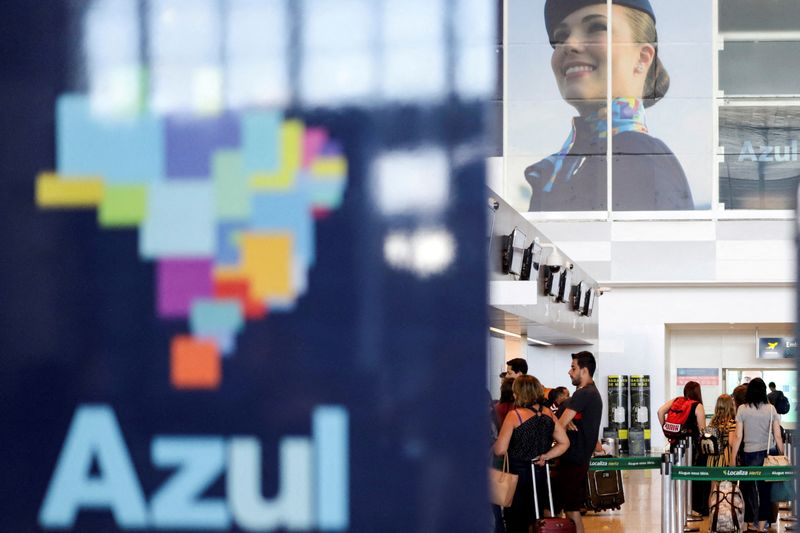By Gabriel Araujo
SAO PAULO (Reuters) - Brazilian airlines Azul and Gol have informed local antitrust regulator CADE of their new codeshare agreement and do not expect hurdles to be imposed, Azul's chief executive told Reuters.
The carriers, which each have around 30% of domestic market share, unveiled the deal last week, covering all domestic routes operated by one but not the other, along with their frequent flyer programs.
The move also reignited speculation of a potential merger between the airlines, which would need antitrust approval.
Azul said in a late Tuesday securities filing, after the Reuters interview, that it had been in talks with Gol's parent Abra Group to "explore opportunities."
Codeshare agreements, which allow airlines to sell seats on each other's flights, do not require antitrust green light in Brazil, but some have voiced concern about market concentration and suggested the watchdog should look into the matter anyway.
"We went to CADE to explain what we are doing, and if they decide to look at it, that is fine," Azul CEO John Rodgerson said. "There is no overlapping routes, no pricing coordination. So we don't see problems."
Rodgerson noted that Azul had a similar deal with rival LATAM in 2020, when the COVID-19 pandemic hit the air travel industry. That agreement fell apart the following year as Azul unsuccessfully bid to combine with the Chile-based carrier.
Azul's new codeshare deal with Gol came after the latter filed in January for bankruptcy protection in the United States, amid struggles with heavy debt and delayed deliveries from planemaker Boeing (NYSE:BA).
But Rodgerson said the companies had been in talks for some sort of agreement even before that, given their complementary networks. Gol focuses on big cities such as Sao Paulo, Rio de Janeiro and Brasilia, while Azul has a more dispersed network.
"We operate in some 100 cities where Gol doesn't, so things will be able to flow much easier from now on," he said.
Analysts estimate that Azul flies alone on more than 80% of its routes.

Brazilian airlines have enjoyed strong demand this year. In March, Azul raised its estimate for core earnings, also citing improving fuel prices and capacity growth.
The carrier expects to add two to three aircraft per month from June until the end of the year, most of them Embraer, and is confident that demand will be good.